Search
Search Results

Definition
Upanishads
The Upanishads are the philosophical-religious texts of Hinduism (also known as Sanatan Dharma meaning “Eternal Order” or “Eternal Path”) which develop and explain the fundamental tenets of the religion. The name is translated as to “sit...

Image
Châteaux of the Loire Valley, c.1750
A map illustrating the Castles of the Loire, or "Châteaux de la Loire," the numerous (over 300 castles) grand and historic castles located in the Loire Valley region of France. Many of these castles, built primarily during the Renaissance...

Article
Trade in Ancient Mesopotamia
Local trade in ancient Mesopotamia began in the Ubaid Period (c. 5000-4100 BCE), had developed into long-distance trade by the Uruk Period (c. 4100-2900 BCE), and was flourishing by the time of the Early Dynastic Period (2900-2334 BCE). Developments...
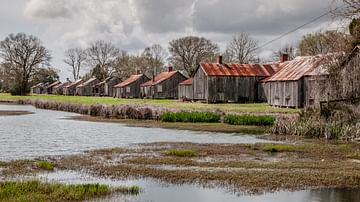
Image
Laurel Valley Plantation
Laurel Valley is the largest 19th- and 20th-century sugar plantation in the United States. Many original structures built in the 19th century survive. Lafourche Parish, Louisiana.
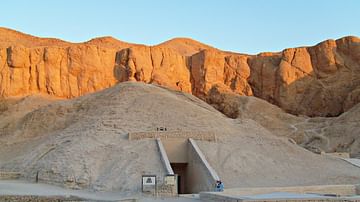
Image
Valley of the Kings
Tomb of Ramesses IV, Valley of the Kings, Egypt
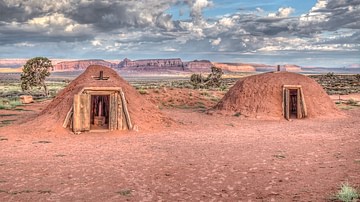
Image
Navajo Hogan in Monument Valley Navajo Tribal Park, Arizona
Navajo traditional Hogan in Monument Valley, Arizona.
Photograph by Dsdugan, 2016.
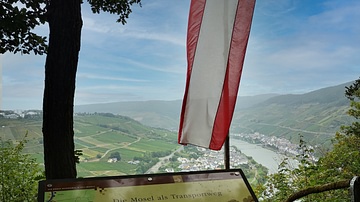
Image
Roman Trail in the Moselle Valley
The Moselle Valley trail (German: Moselsteig) and the cross-border cultural route "Straßen der Römer" (Roads of the Romans) take visitors through one of the most beautiful landscapes in Germany where Roman estates, temples, mausolea, and...
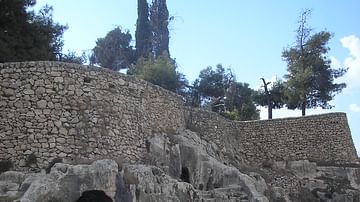
Image
Valley of Hinnom
Tombs at the Valley of Hinnom, the site in Jerusalem that became symbolic of an early version of hell, Gehenna.
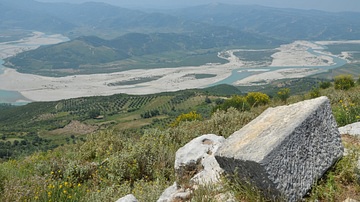
Image
View towards the Vjosa Valley from Byllis, Albania
View towards the Vjosa valley from Byllis, Albania. The site occupied a dominant position on the summit of a hill, over the road from Apollonia to Epirus and into Macedonia.
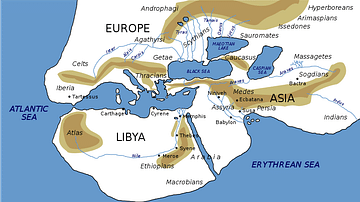
Article
Depictions of India in Ancient Literature
Herodotus (484 BCE – c. 425 BCE) has been called the Father of History since he was the first historian known to collect his materials in detail, test their accuracy to a certain extent and arrange them in a well-constructed and vivid narrative...